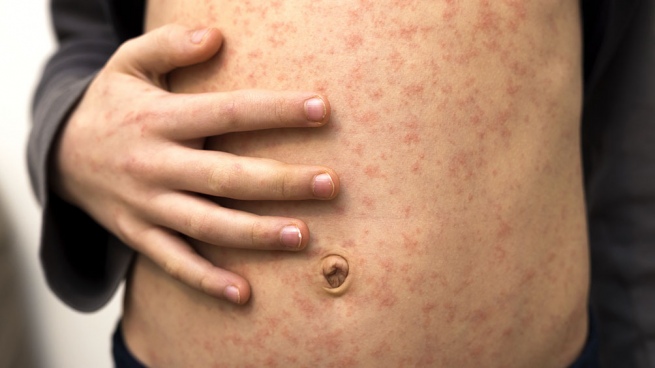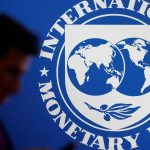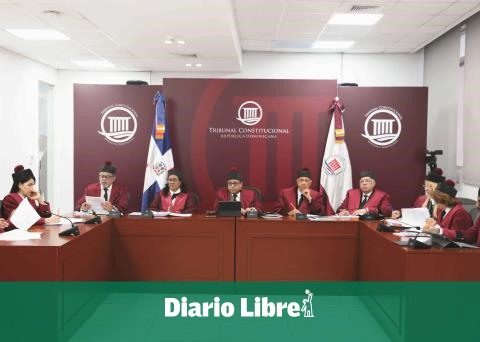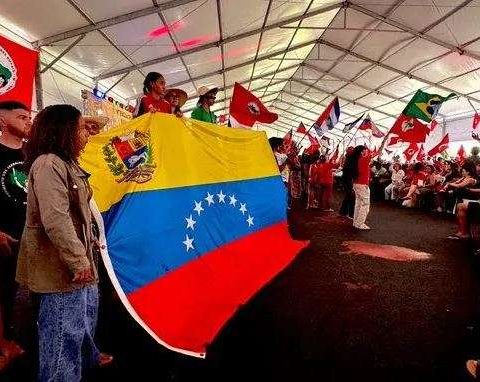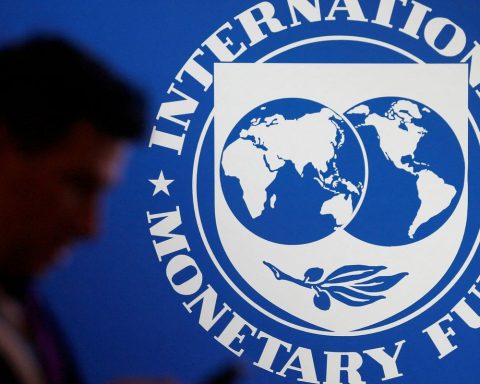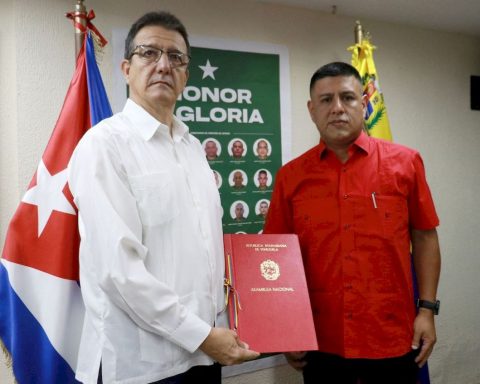The Minister of Health Carla Vizzotti confirmed this Monday a case of measles in a resident of the city of Buenos Aires contracted in the Middle East and recalled that “the drop in vaccination coverage in the world, due to the pandemic, is a situation that It put us at risk.”
Vizzotti warned that “globalization and the increase in the important circulation of measles in many countries around the world, meant that we had an imported case, and from there the risk of an outbreak.”
He also stressed that they have just “confirmed the case” through the ANLIS-Malbrán. “The PCR was positive and now we are notifying it”he added in a sustained dialogue with Radio con Vos.
Regarding the current situation, the minister explained that, together with CABA, “the investigation of the case is being carried out, which consists of the investigation ofSince symptom onset for all contactsif some of them have symptoms”.
“The alert that was issued over the weekend is for the health team, to make diagnostic suspicion and sample collection very sensitive, and for the population if they have any symptoms such as spots on the skin, fever, conjunctivitis, rhinitis.”
In these cases, Vizzotti recommended consulting “immediately to be able to minimize the impact and, of course, control the vaccines, that we all have the vaccines up to date.”
The measles vaccine is on the calendar after one year of life and school entry, so all boys and girls between 12 months and 5 years old should have at least one dose, the minister added.
Other health professionals consulted by Télam affirmed that the cause of the appearance of a case of measles is due to the fact that “this person is not vaccinated” and stressed that vaccination is “effective” for its prevention.
The measles vaccine is scheduled for one year of life and school entry, so all boys and girls between 12 months and 5 years old should have at least one dose.
The infectologist and deputy director of the Muñiz Hospital, Juan Carlos Cisneros, in dialogue with Télam, stated that “20 years ago there has not been a case of indigenous measles”, and that this is because “vaccination is highly effective”. In this sense, he pointed out that vaccination against measles is applied in the first 6 years of life.
In the same vein, the infectologist Jorge Geffner, He reaffirmed that as a result of the pandemic “the coverage of the national vaccination calendar fell.”
“We should all receive the triple antiviral, because this virus is very contagious.”
In relation to this, Cisneros affirmed that one of the difficulties is that “The immunocompromised cannot be vaccinated.”
Both infectologists, like Vizzotti, considered that vaccination is the only way to prevent measles. “The measles vaccine is tremendously effective and tremendously safe”Geffner pointed out.
Regarding doubts about whether individuals are vaccinated or not, for example, given the loss of the vaccination card, Vizzotti stated that “the idea is to also get the vaccine. It doesn’t matter if we have an extra dose, the important thing is to try to generate the security of having antibodies, defense and immunity”.
“This vaccine, unlike the flu vaccine or the COVID-19 vaccine, is a vaccine that really makes Argentina is free of endemic measles since the year 2000. THaving the disease gives us long-term immunity, and having the complete vaccination schedule prevents us in more than 95% from the possibility of having it,” added Vizzotti.
Measles is a disease that can be eliminated because the only reservoir is the human being, unlike respiratory viruses.
“So if we get vaccinated we can really limit the circulation of the virus, not just complications and deaths, but the circulation of the virus,” Vizzotti concluded.
At the same time, the infectologist Luis Camera told Télam that “the risk with measles is that, since in some regions of South America there is still circulation, it is possible that we have more imported cases in the unvaccinated population.”
“Likewise, he added, I think it will not have much impact, since the second crisis we have had, after 20 years, was that of 2019-2020 with around 175 cases.” After those crises that could be resolved, Argentina was declared by the WHO, “free of measles”, he specified.
“You have to be vigilant, be careful, handle yourself with alertnessbut I do not presume that this can be expanded with a lot of volume, despite the fact that measles is highly contagious, probably the most transmissible virus due to the aerosolization it generates,” Cámera reported.
“Prevention basically has to do, as in the case of all respiratory viruses, that the places have to be open and airy and eventually, what has to do with contact, that is: clean all surfaces because one can also get infected by contact, but measles is the prototypical example of airborne transmission since the virus aerosolizes very easily and it can stay in an environment for a few hours, so if a person enters they can get it just by breathing. That happens in school classrooms where, if children are not vaccinated, they could easily become infected,” he added.
Another infectologist, Gabriela Piovano, He pointed out that “in general, the population in Argentina, compared to other countries, has protection against measles because the vaccination schedule in Argentina includes anti-measles, and vaccination has been included since 1965, except for the five years of Macri’s government where , within the vaccines that were found stranded at Customs, some doses of anti-measles were included. Thus, it was a very serious situation that was reflected in an outbreak of measles cases.”
“In that sense, Those who travel abroad and are not vaccinated are at risk of contracting the disease. And the rest of the population, such as pregnant women, children, the elderly and those with immunological problems, have priority for vaccination,” he added.
“Although the measles virus is much more transmissible than the coronavirus, it is also true that vaccination is more effective to avoid cases and also that in our country anti-measles vaccination is already many years old.
Prevention has to do with the isolation of cases, the control of travelers’ contacts and, above all, with the vaccination of people at risk,” he concluded.
A wake up call
On November 23, the Ministry of Health issued an alert for the “risk of reintroduction” of measles in Argentina. “There is no specific treatment for measles, however, for prevention there is a safe and effective vaccine available in the National Vaccination Calendar of Argentina,” it was recalled then.
Upon notification of the possible case, andThe Ministry issued an “epidemiological alert” and urged “health teams to intensify epidemiological surveillance of the febrile exanthematous disease (EFE), immediate notification and implementation of control actions upon the detection of suspected cases to prevent reintroduction of the virus into the country.”
Health personnel were reminded that the case definition is “Febrile Exanthematic Illness (EFE)”, that is, a patient with fever (axillary temperature greater than 38ºC) and rash, or any case in which the health professional suspects measles. or rubella.
Any suspected case of EFE must be reported to the National Health Surveillance System within 24 hours of detection without waiting for laboratory results.
In Argentina, the last endemic case was registered in 2000, and from the elimination of the disease until 2018, 43 imported cases were registered. and “import-related”.
Between 2019 and 2020, 199 cases of measles were confirmed, 18 of them imported, 2 related to importation and 179 of unknown origin.
Given that the measles virus continues to circulate in other countries of the region, and given the decrease in vaccination coverage, the Ministry of Health urged “to maintain high vaccination coverage with two doses vaccine against measles (double or triple viral)” and asked the health system “to articulate protocols for early detection of the disease through a sensitive surveillance system that prevents dissemination”.
He also recalled that the measles-containing vaccine on the occasion of a trip must be applied at least 15 days before departure.
